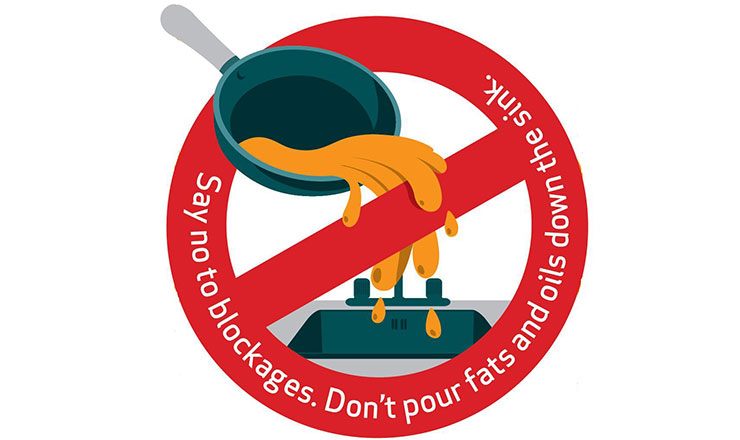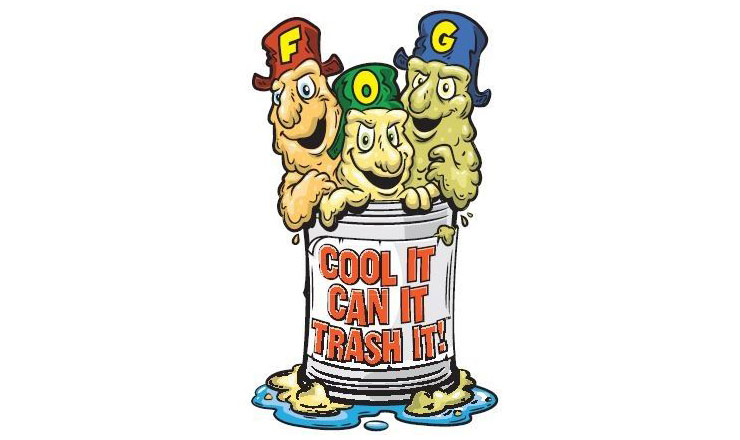Fats, oils and grease (also known as F. O. G. are just as detrimental to sewage pipes as they are to our waistlines and arteries. F. O. G. clogs and obstructs sewer pipes, causing expensive backups and overflows of sewerage. These sewage overflows and backups can endanger public health, harm residential interiors, and harm the environment. Protect Pipes From Fats, Oils and Grease (F. O. G. ) Video.
The holidays are a time for celebration, but they can also be a time for mess. Turkey drippings are a common byproduct of roasting a turkey, and they can be a challenge to dispose of properly. If not disposed of correctly, turkey drippings can attract pests and create a foul odor.
This guide combines the best insights from two reliable sources, TheTrashCanTurkey.com and the Courier-Journal, to provide you with a comprehensive understanding of how to dispose of turkey drippings safely and effectively.
Key Takeaways:
- Never pour hot grease down the drain: This can solidify and clog your pipes, leading to a messy and expensive plumbing issue.
- Cool the grease first: Allow the grease to cool completely before handling it. You can place the container of grease in the refrigerator or freezer to speed up the cooling process.
- Use a heat-safe container: Pour the cooled grease into a metal can, glass jar, or other heat-safe container. Avoid using plastic containers, as they can melt or warp when exposed to hot grease.
- Discard the container in the trash: Once the grease has solidified, throw the container away in your regular trash.
- Dispose of scraps in the trash: Avoid putting food scraps down the garbage disposal, as they can contribute to grease buildup in your pipes. Instead, scrape food scraps into the trash.
- Recycle used cooking oil: If you deep-fry your turkey, consider recycling the used oil at designated drop-off locations. Check with your local waste management company for information on available recycling programs.
Additional Tips:
- Use a grease trap: If you have a grease trap installed in your kitchen sink, you can pour the cooled grease directly into it.
- Make gravy: Turkey drippings can be used to make delicious gravy. Simply whisk the drippings with some flour, broth, salt, and pepper to taste.
- Freeze for later use: If you don’t plan on using turkey drippings immediately, you can freeze them for later use. Pour them into a freezer-safe container and store them in the freezer for up to three months.
By following these simple steps, you can avoid clogging your pipes and ensure that your turkey drippings are disposed of safely and responsibly.
Here’s a summary of the information from both sources:
TheTrashCanTurkeycom:
- This website provides a detailed guide on how to dispose of turkey drippings, including safety precautions and tips for avoiding cross-contamination.
- The article also discusses various ways to use turkey drippings, such as making gravy, stock, or adding them to dishes for extra flavor.
Courier-Journal:
- This news article focuses on the importance of proper grease disposal during the Thanksgiving holiday.
- It highlights the risks of pouring hot grease down the drain and provides instructions on how to cool and dispose of grease safely.
- The article also mentions the option of recycling used cooking oil at designated drop-off locations.
By combining the information from both sources, you can gain a comprehensive understanding of how to handle turkey drippings safely and effectively.
Remember, proper disposal of turkey drippings is essential for preventing plumbing issues and protecting the environment. By following these guidelines, you can enjoy your Thanksgiving feast without worrying about the aftermath.
What We Can Do to Fight F.O.G.
You can help us fight F. O. G. and dispose of it correctly to prevent it from getting into our sewer lines.
- Never pour grease down sink drains or into toilets.
- Grease and food scraps should be scraped off of trays, plates, pots, pans, grills, and cooking surfaces and placed in your kitchen trash can or a metal can.
- After cooking, let any leftover grease in the pot or skillet cool before pouring it into a metal can. Just toss the can in your kitchen trash when it’s full.
- Do not put grease down garbage disposals. Rather, use strainers or baskets to collect food scraps and other solids in sink drains. Empty the drain basket/strainers into the trash for disposal.

Where does F.O.G. come from?
Most of us know grease as the byproduct of cooking. Grease is found in such things as:
- Meat fats
- Cooking oil
- Shortening
- Butter and margarine
- Food scraps
- Sauces
- Dairy products
- Baking goods
Grease enters the plumbing system far too frequently, usually through the kitchen sink. Grease accumulates on the interior of sewage pipes in the streets and on your property. Grease accumulation over time can clog the entire pipe. Home garbage disposals do not keep F. O. G. out of the plumbing system. These devices do not stop F, they merely shred solid material into smaller pieces. O. G from going down the drain.

60-Second Video Tips: 3 Easy Ways to De-Fat Stock
FAQ
Can I put turkey drippings down the drain?
How do you dispose of leftover turkey grease?
How do you get rid of drippings?
What can you do with turkey grease?
Can you put Turkey grease down the drain this Thanksgiving?
WSSC Water agreed. The utility said the best way to dispose of fats, oils, or grease is to put it in a disposable container, let it cool down, then toss it in the trash later. So we can Verify that you shouldn’t put your turkey grease down the drain this Thanksgiving, it can clog your pipes.
What can you do with Old Turkey grease?
Some cities collect used turkey grease and other cooking oils and recycle it into biodegradable renewable fuel. Read about how Dallas is turning grease into electricity. The city of Plano will even pick up the grease for you.
How do you keep a Turkey from exploding?
Keep flammable items, such as dish towels and oven mitts, away from the stovetop. Use a timer as a reminder when cooking dishes that require longer preparation. Deep-frying turkey: If you plan to deep-fry a turkey, do so outdoors and keep the fryer a safe distance away from the house and other structures.
How do you dispose of Kitty Litter?
The kitty litter mixture can then be put in a garbage bag. Also, instead of rinsing greasy dishes with hot water, first wipe off the excess oil or grease with a paper towel and throw in the trash or compost. Some cities collect used turkey grease and other cooking oils and recycle it into biodegradable renewable fuel.
